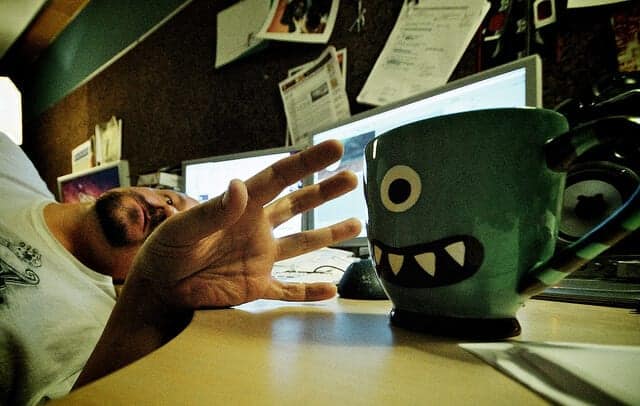Feeling the afternoon doldrums? Put down the cup of coffee and take to the stairs to gain a quick energy boost.
New research from the University of Georgia suggests that engaging in 10 minutes of physical activity, such as stair walking, can get you more motivated to perform necessary tasks than a caffeine-laden beverage like coffee or soda.

The researchers are investigating how even moderate levels of physical activity can help sedentary office workers gain some extra focus during the workday. For the study, they assessed a demographic that shares similar characteristics to the average office worker — college-aged women who reported that they were chronically sleep deprived and had less than six-and-a-half hours of sleep per night.
They divided the study participants into two groups, one that walked up and down a flight of stairs for 10 minutes and another that took a 50-milligram caffeine pill or a placebo. The 50 milligrams of caffeine is roughly the same amount that’s found in a can of soda.
Related: Bad Office Air Quality May Harm Productivity
Depending on the day, study participants attached to the pill group received either the full 50-milligram dose or a placebo.
“We found, in both the caffeine and the placebo conditions, that there was not much change in how they felt,” said study co-author Patrick J. O’Connor, a professor in the Department of Kinesiology.
The findings were different for those in the group that engaged in physical activity.
“With exercise they did feel more energetic and vigorous. It was a temporary feeling, felt immediately after the exercise, but with the 50 milligrams of caffeine, we didn’t get as big an effect,” said O’Connor.
O’Connor and his fellow researchers, whose findings appear in the journal Physiology and Behavior, designed their study to mimic a type of exercise that’s available to just about any employee, who often doesn’t have enough time in the day to engage in a strenuous workout.
Related: Why You May Want to Drink Water Before Coffee in the Morning
“Office workers can go outside and walk, but weather can be less than ideal. It has never rained on me while walking the stairs,” said O’Connor. “And a lot of people working in office buildings have access to stairs, so it’s an option to keep some fitness while taking a short break from work.”

The researchers tested how well the study participants performed on verbal and computer tests after engaging in exercise or receiving a caffeine or placebo pill. While a lack of sleep appears to be a challenge to overcome, the stair walkers showed more fire to endure.
“Neither caffeine nor exercise caused large improvements in attention or memory, but stair walking was associated with a small increase in motivation for work,” report the study authors.
O’Connor and colleagues call for more research on the benefits of stair exercises, but they’re optimistic that their research can help busy employees find an effective way to improve their cognition at work.
“You may not have time to go for a swim, but you might have 10 minutes to walk up and down the stairs,” said O’Connor.
Richard Scott is a health care reporter focusing on health policy and public health. Richard keeps tabs on national health trends from his Philadelphia location and is an active member of the Association of Health Care Journalists.


![How To: ‘Fix’ Crepey Skin [Watch]](https://cdn.vitalupdates.com/wp-content/uploads/2017/05/bhmdad.png)












